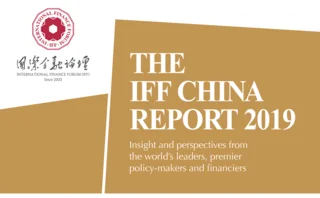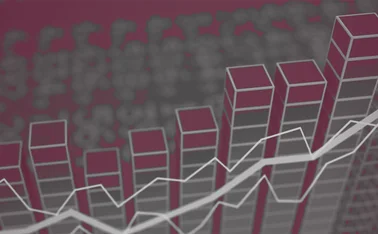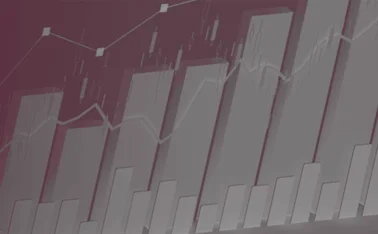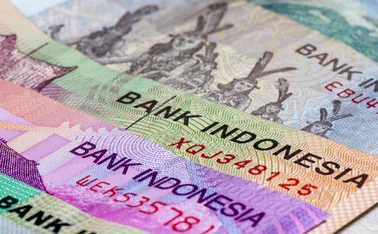
An international system for all


The global economy is undergoing profound change. Declining growth momentum, a widening wealth gap, global political conflicts, volatile financial markets and rising trade protectionism have derailed globalisation efforts. Major advanced economies remain trapped in cyclical economic crises. As the world’s major central banks gradually tighten monetary policy, debt will continue to grow rapidly, and the risk of another economic downturn is emerging.
Many developing countries are using trial and error to seek out sustainable economic development. Given the different political and economic landscapes in these countries, no single model can secure successful sustainable growth. As a result, many developing countries are exploring and experimenting with different policies in line with their own domestic frameworks.

Meanwhile, many have not been able to shake off periodic volatility of the US dollar. Since April 2018, as the dollar index has risen beyond all expectations, countries including Argentina, Turkey and Brazil have experienced financial turmoil, and asset prices have sharply adjusted.
Echoes of the financial crisis
A decade on from the 2007–08 financial crisis, the smoking gun is now believed to have been an imbalance in the global financial system. Excessive debt leverage, ‘too big to fail’ financial institutions and shadow banking were to blame. However, over the past decade, there has been no fundamental change to mitigate recurrence of these issues.
According to the Institute of International Finance, global debt climbed to a new peak of US$247 trillion in the first quarter of 2018, equivalent to 318% of global GDP. The top five US banks now control 47% of US bank assets, compared with 44% in 2014, with the largest 1% of mutual funds managing 45% of assets. The value of the shadow banking industry, meanwhile, has grown to $45 trillion ($28 trillion in 2010), controlling 13% of the world’s financial assets. Regulatory pressure on banks appears to have only created more room to grow for the shadow banks.
Governance reform
The US has transformed from being a leader and defender of multilateralism and free trade, to a cheerleader for the bilateral principle of “America First” in trade and investment. President Donald Trump’s waving of a protectionist stick has brought increasing uncertainty to economic globalisation.
Technology is pushing back against this new trend. The development of intelligent manufacturing, the digital economy and the widespread use of renewable energy has led to profound change in global value chains. The traditional impetus for globalisation has been diminishing; it is now urgent we find new stimuli.
In a keynote speech at the Asia-Pacific Economic Cooperation Leaders’ Meeting in November 2018, President Xi Jinping indicated we should improve global governance. The existing international multilateral financial system, established after World War II, is rules-oriented and far from perfect.
Progression remains the priority of developing economies and the solution to social and economic problems, including poverty and uneven income distribution. Developed countries focus more on macro policy and public governance. Advanced economies generally have a greater influence over the international multilateral financial system, and yet it is the developing countries that need their say the most.
For reform to be successful, it must be endorsed by all. There is a strong case for reform of the international system, including the World Bank and the International Monetary Fund, but the direction of such reform is uncertain.
Emerging markets and developing countries have underlined the shortcomings of these multilateral institutions for many years and have demanded more decision-making power. The demands in emerging markets and countries at various stages of development are not aligned with each other, let alone with advanced economies. Some developing economies are good at destroying an established order, but not yet proficient in building a new one.
In the future, multilateral financial institutions will have an important role to play in helping member countries carry out countercyclical regulation, temper expectations and boost market confidence through infrastructure investment and other methods. In 2015 and 2016, the Asian Infrastructure Investment Bank (AIIB) and the New Development Bank (NDB) were established.
The two banks are complementary to the existing global multilateral financial system by financing large global infrastructure. In the spirit of openness, inclusiveness and win-win co-operation, the AIIB and the NDB have established close partnerships with existing multilateral development banks, bilateral development agencies and the private sector to explore a variety of business models, including government and social capital co-operation and joint financing, so as to jointly improve the level of infrastructure investment and financing in developing countries and promote sustainable development and global economic recovery.
Only users who have a paid subscription or are part of a corporate subscription are able to print or copy content.
To access these options, along with all other subscription benefits, please contact info@centralbanking.com or view our subscription options here: http://subscriptions.centralbanking.com/subscribe
You are currently unable to print this content. Please contact info@centralbanking.com to find out more.
You are currently unable to copy this content. Please contact info@centralbanking.com to find out more.
Copyright Infopro Digital Limited. All rights reserved.
As outlined in our terms and conditions, https://www.infopro-digital.com/terms-and-conditions/subscriptions/ (point 2.4), printing is limited to a single copy.
If you would like to purchase additional rights please email info@centralbanking.com
Copyright Infopro Digital Limited. All rights reserved.
You may share this content using our article tools. As outlined in our terms and conditions, https://www.infopro-digital.com/terms-and-conditions/subscriptions/ (clause 2.4), an Authorised User may only make one copy of the materials for their own personal use. You must also comply with the restrictions in clause 2.5.
If you would like to purchase additional rights please email info@centralbanking.com







